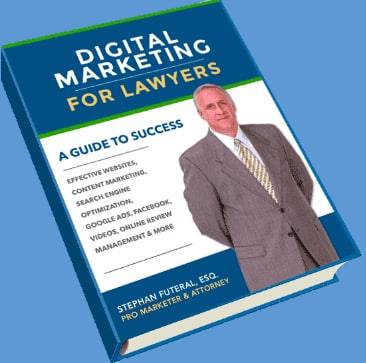SEO for Lawyers
Service
SEO Experts for Lawyers

SEO Strategies for Lawyers in the Digital Age
We are lawyer SEO experts because we follow well-established webmaster guidelines. Our law firm SEO agency uses our expertise in online marketing to enhance the ability of search engines to identify your law firm’s website and your legal services, which in turn will increase your website’s visibility. If you need a law firm SEO expert for your law firm, we are here for you and can help you rank for the most targeted, lucrative searches. Contact us today to learn why we are one of the best SEO companies for lawyers.
What is Law Firm SEO?
The skills required for legal SEO are very technical. These skills include website design, content writing, and coding. The goal of law firm SEO is to increase the quality and quantity of your website’s traffic by improving your law firm website’s organic (not paid ads) search engine results.
Is Law Firm SEO Difficult?
Marketing agencies understand that lawyer SEO is challenging for four reasons. First, Google constantly changes its search algorithms. Second, Google continually changes the way it displays search results. Third, Google shows different search results to different people in different locations. Fourth, SEO is highly competitive.
1. Google is Constantly Changing Its Search Algorithms
The first thing to understand about SEO is that Google is CONSTANTLY changing its search results algorithms and, consequently, how your law firm website ranks on any given day. For example, in 2018, Google updated their search algorithm a whopping 3,234 times and ran thousands of experiments and tests as follows:
Search Quality Tests
Side-By-Side Experiments
Live Traffic Experiments
Changes Launched
The point of illustrating all of the changes that Google regularly makes to its search algorithms is to show that SEO is a constant process and not a single event. Additionally, because of all the changes made by Google to their search results, SEO experts have to stay on top of their game. Specifically, techniques that work one month to rank a website highly may not work the next month or even cause a site to lose its ranking position.
2. Google is Constantly Changing the Way It Displays Search Results
Since Google launched its search service to the public in 1998, the way it now displays search results has changed significantly. Over time, Google has pushed organic search results lower by showing 3 to 4 Google Ads for lawyers first, the local 3-Pack (sometimes 4 with a paid spot), and then organic search listings. For example, here is a search for “divorce lawyers in charleston sc” that shows the paid listings, the local 3-Pack, and then our CEO’s law firm’s listing (charlestonlaw.net) as the #1 organic listing (at least as of today). The takeaway here is that it has become increasingly more important to rank at the top position organically because Google is first loading up search results with paid ads and other information.
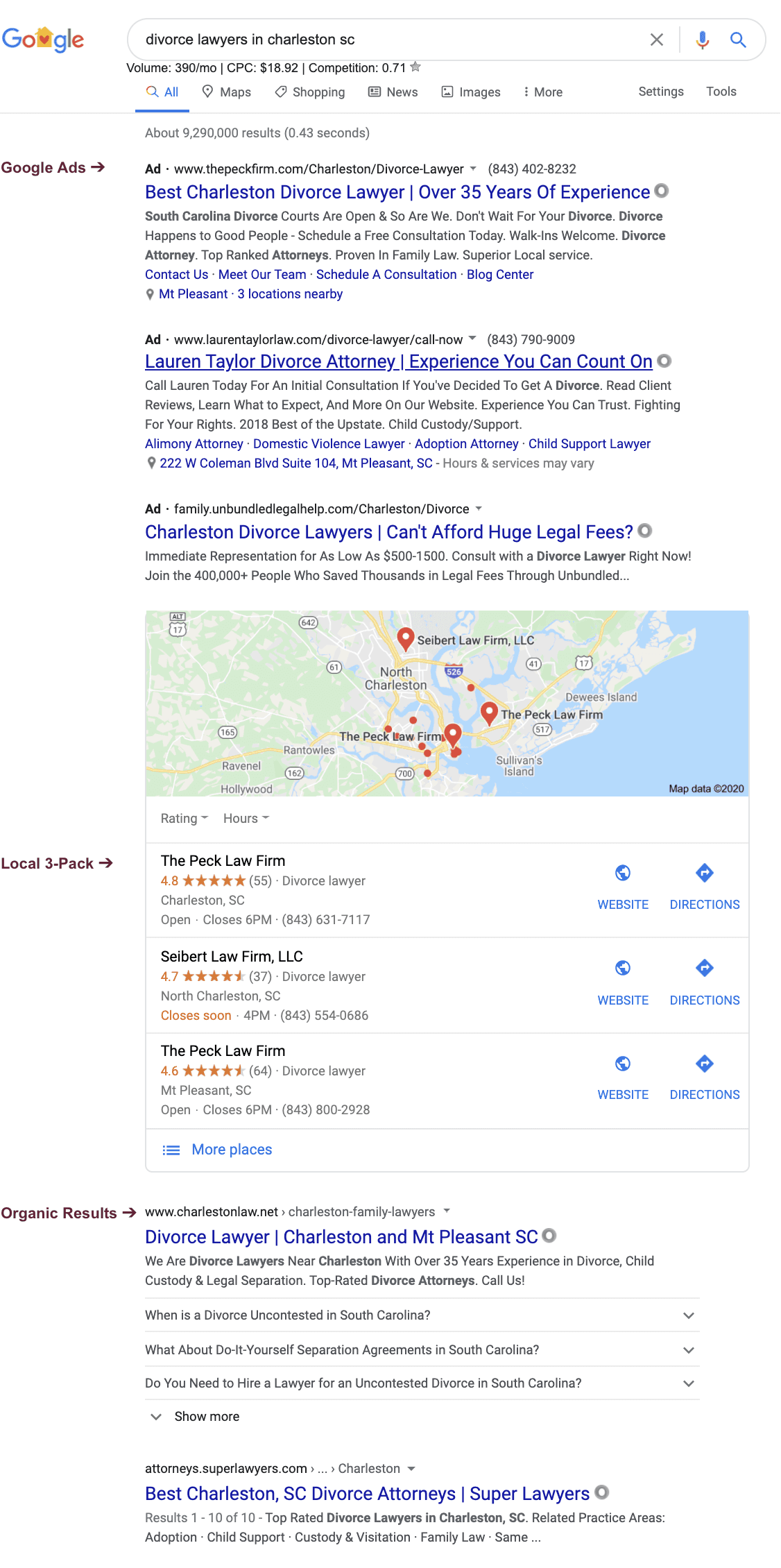
3. Google Changes Search Engine Results for Different Users & Different Locations
Typically, the same search in Google run by two different people will produce two different results. Here’s why – Google has been “personalizing” search engine results since 2009, regardless of whether you use a Google product such as Gmail. Essentially, Google continuously tracks where you are, what you search for, and what you click on. Over time, Google “learns” more about your online habits and interests and, in turn, gives you different results than other searchers such as your family members, your neighbor across the street, or a stranger searching online 500 miles away from you. For example, let’s say that you favor a particular news site such as CNN.com. Over time, Google will show you more results from CNN than from other news sites. Additionally, when you’re using Google on a mobile device, Google learns where you go each day based on your GPS coordinates when you perform a search or use a Google app such as Gmail. Based on this information, if someone from Topeka, Kansas searches for the term “criminal lawyer” on their mobile device without including any geographic information, Google will show the user criminal attorneys from Topeka.
For another example, if you search for “divorce lawyers near me” from my Mt. Pleasant, South Carolina, our CEO’s law firm shows up in the local 3-pack as follows:
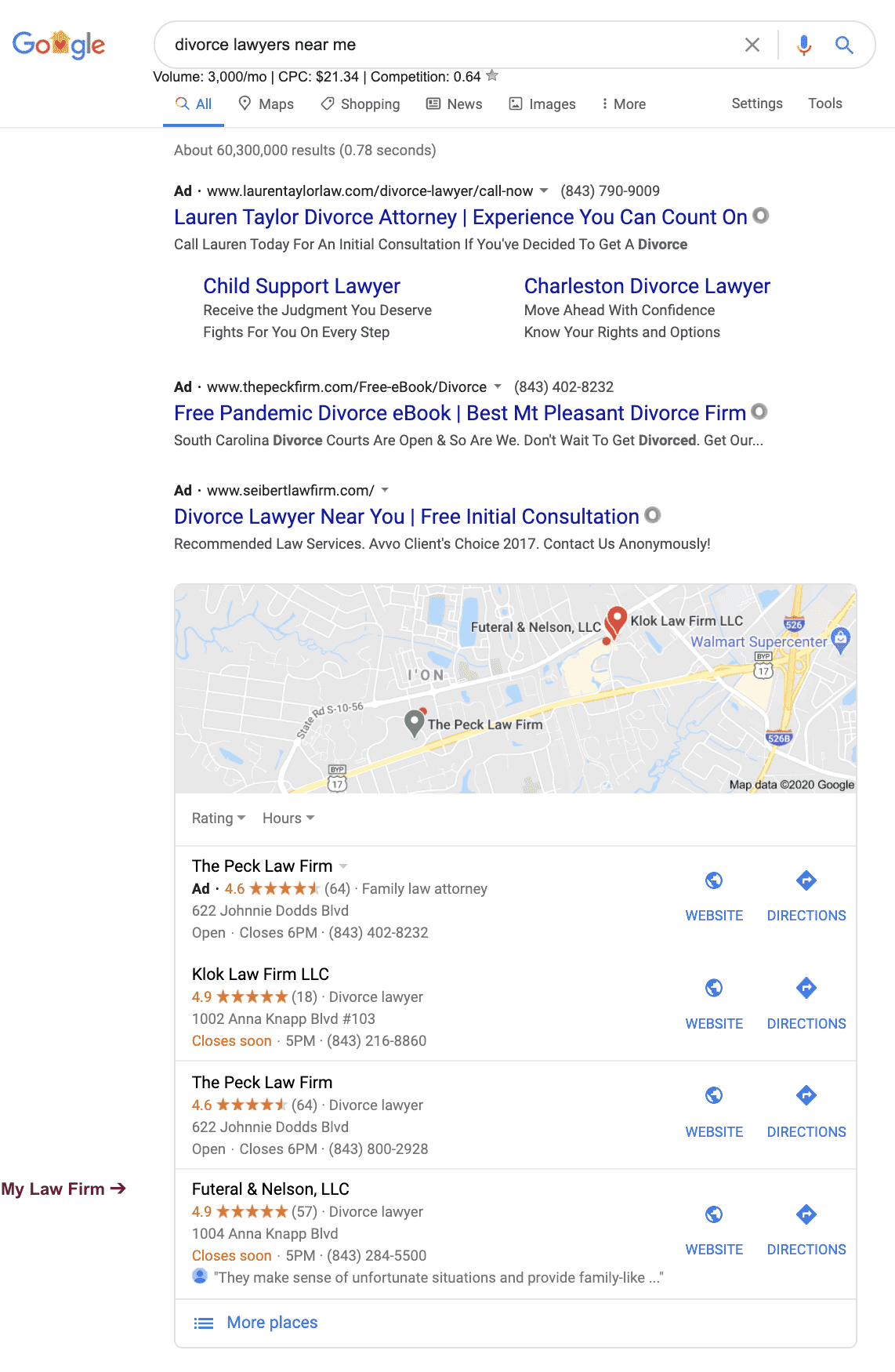
However, if you run the same search for “divorce lawyers near me” when you are in Charleston, SC instead of Mt. Pleasant, SC, you get different 3-pack results as follows:
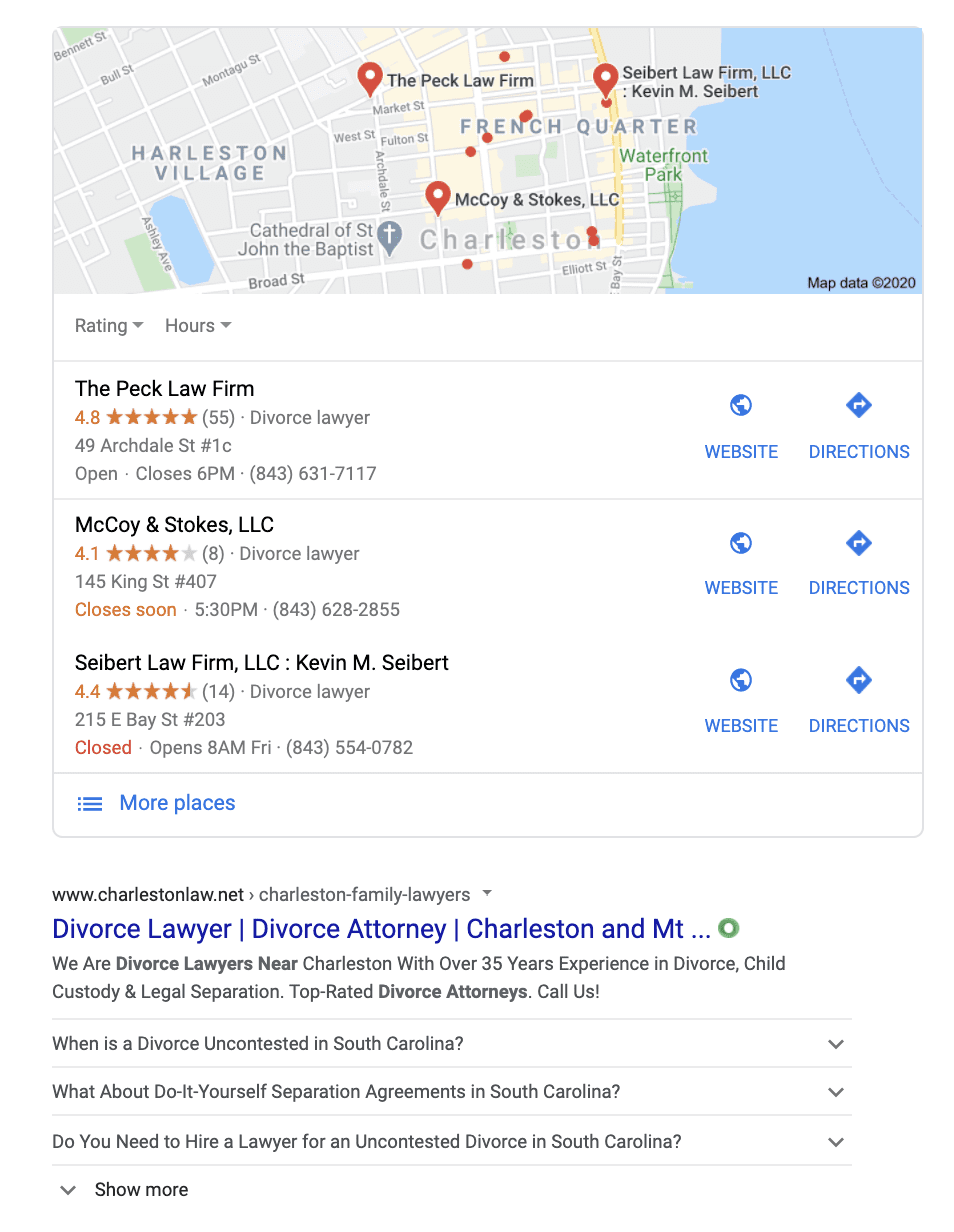
4. Lawyer SEO is Remarkably Competitive
More than 90% of people looking for legal advice use a search engine, and over 70% of consumers visit a law firm’s website to take action. The majority of search engine users are more likely to click on one of the first five suggestions in the search engine results pages. With ten organic positions on the 1st page of Google’s search results, law firms are financially investing heavily in appearing on the coveted top five spots of the first page of search results. Here is a specific example. If you search for “injury lawyers in new york city,” Google returns over 23,000,000 possible results!

With 23,000,000 likely websites for Google to show for “injury lawyers in new york city, and with hundreds (if not thousands) of personal injury lawyers vying for the first page of search results, you can begin to understand why SEO is so costly and competitive.
Is SEO for Lawyers Important?
SEO is important because: (1) organic search is a primary source of a law firm’s website, (2) SEO enhances the user’s experience, and (3) SEO increases your website’s “trust” factor.
Organic Search is the #1 Source of Traffic to a Law Firm’s Website
As indicated above, the overwhelming majority of people looking for legal aid use search engines such as Google and Bing, and the vast majority of visitors to a law firm’s website take action. Therefore, law firm SEO expert is a priority for any law firm looking to increase their caseload.
SEO Enhances the User’s Experience
Google interprets favorable or unfavorable user experiences on your website. Therefore, positive user experiences have become a crucial element of a law firm website’s success. Consequently, a professional SEO expert focuses on the user experience and the usability of a website. Usability is about achieving objectives and task completion. So when SEO professionals measure the effectiveness of a website, they evaluate:
- Whether searchers can achieve their goals and complete specific tasks via a search engine and your website.
- Whether searchers easily find their desired information, destination, or activity on your website.
- Whether there are impediments to searchers’ objectives and how those impediments can be eliminated.
Top Presence in Search Engine Results Increases Your Website’s Trust Factor
Users trust search engines, especially Google, to give them the best and most relevant search results. Via ranking high on search engines and thereby having a presence in the top positions for the keywords the user is searching, your law firm business will build trust and credibility with potential clients.
How Long Does Lawyer SEO Take To Work?
The question we get asked most often is, “How long will it take for you to get my website ranked #1 for my keywords?” This question is born out of the misconception that SEO is all about keyword rankings. When JustLegal begins the process of optimization, we run keyword ranking reports. We run these reports as evidence of a “canary in the coal mine.” Mainly, if we observe that the law firm’s site isn’t showing within the search engine results, we know that site is in trouble and that it needs more TLC. Otherwise, the more meaningful metrics we use to measure SEO performance are: (1) the volume of site traffic and (2) whether visitors are engaging with the site by visiting other pages, filling out the site’s contact form, and clicking to call, etc. The better question to ask is “How long will it take for SEO to start generating leads?” Unfortunately, the is no “one-size-fits-all” answer to that question. Specifically, the answer to that question depends on numerous SEO factors, including:
- The design of the law firm’s website
- How much content does the website have
- How much SEO work has previously been done for the website
- How many backlinks there are to the website
- How much online competition there may be for your firm’s services
In our experience, you should start to see results within four to six months. Moreover, the results you get will be more significant over time. Here is an example of what happens during the first four months or so when JustLegal begins a new SEO strategy for a law firm:
- 1st Month – Website audit, keyword research and strategy, and planning within the first few weeks. After that, technical work begins by making modifications to the website (assuming the site does not need a complete redesign) and by building backlinks to the site. This process continues month after month, year after year.
- 2nd Month – Content creation, including blogging, firm information, and so on. You may see some improvements in rankings by the end of this month, but you may not see those rankings result in leads at this time.
- 3rd Month – The same process as Month 2 by which time you could experience an increase in rankings, traffic, and lead generation.
- 4th Month – With additional site content such as blogs, you now have something to share on social media. At this stage, you can include social media management to increase direct traffic to your website. You should see more organic traffic to your site, and your leads should increase. As traffic grows, your SEO expert now has more data from which to refine your website’s conversion rate by making adjustments to calls-to-action, contact forms, and web page designs throughout your site.
- Months 5 & Beyond – As you are working to improve your lawyer website SEO, your competitors will take notice and action to increase their visibility above and beyond yours. Therefore, each month is a continuing process, as described in Months 3 and 4 to maintain and improve your SEO indefinitely.
Is Keyword Ranking Important for Lawyer SEO?
There’s a connection between having a high ranking for a high-volume keyword or phrase and having that keyword or phrase bring your site search engine traffic. However, keyword rankings aren’t the “end-all-and-be-all” of search engine optimization, mainly for two reasons. First, search engine results are highly personalized and therefore vary for different users. Second, long-tail keywords and semantic search results mean that Google is returning results to users that are much more relevant than just a few keywords or phrases.
The way people search online for lawyers and legal services is becoming more intricate each year for two primary reasons. First, search engine users are savvier than they were nearly two decades ago. Instead of searching for a “drunk driving attorney,” they are using more complex words and phrases such as “I need a defense attorney for a drunk driving charge I got in Phoenix.” The second reason why searches are more intricate is that devices, especially mobile phones, easily allow searchers to voice, instead of type, complex queries. I don’t know about you, but I’d much rather talk to my smartphone to search than to type out my question. Because searches are more intricate, there are two fundamental digital marketing terms that you should become familiar with – long-tail keywords and semantic search:
1) Long-Tail Keywords: Long-tail keywords are used to target niche demographics rather than mass audiences. In other words, they’re more specific and often less competitive than generic keyword terms.
Example: If you’re a criminal lawyer in Atlanta, the chances are that your pages may never appear near the top of an organic search for “lawyer” or “criminal lawyer” because there’s too much nationwide competition online. Even if we narrow the organic search down to “criminal lawyer in Atlanta,” the competition is still daunting. When I ran that search (using “incognito mode in Chrome to avoid “personalized” results), Google gave me 15,500,00 results. At the top of that list were significant sites such as Avvo, FindLaw, and Justia. However, let’s say that you’re a criminal lawyer in Atlanta who focuses on defending juveniles. Long-tail keywords like “juvenile justice defense lawyer in Atlanta” may help potential clients reliably find what they’re looking for – your firm!
Importance: Long-tail keywords help to target niche demographics and quality traffic rather than focusing on more general, and often highly competitive, generic keyword terms.
2) Semantic Search: Semantics is the science of the meaning of language. Semantic search is an attempt by Google and other search engines to improve the accuracy of search results by “understanding” the searcher’s intent and the contextual meaning of terms used by the searcher.
Example: Suppose someone searches for the term “bark.” Standing alone, the term “bark” may mean the sound a dog makes, the covering of a tree, or a three-masted sailing ship. However, Google attempts to determine the intent and the context of the search by analyzing other terms in the search. For example, if you searched “does bark make good kindling,” then Google associates the term kindling with “tree” bark and returns relevant results to match your search.
Importance: For purposes of SEO, semantic search means that although keywords and phrases still play a role in search results, the “context” and “intent” of the content of your law firm’s website is playing a much larger role with each passing year. Stated another way, creating quality, relevant content for your website is much more important than just focusing on keywords.
Is Content Important for Law Firm SEO?
Most law firm websites get found and clicked on in Google and other search engines for thousands of different keyword combinations and phrases. Although digital marketers may do their best to identify a limited number of the best keywords and phrases that will attract new clients, there is no realistic way to optimize a law firm website for the thousands of other phrases that may bring you targeted visitors to your site.
From one perspective, Google and other search engines are a blessing because they can drive potential clients to your website. However, from another angle these same platforms have the power to bury you in obscurity if not properly optimized for certain phrases that may bring targeted visitors.
The law firm website is the first step in attracting new clients. However, there are no realistic ways to optimize a site for all of the thousands and millions of keywords that might bring you visitors who want your services. The best one can do is identify those phrases which will most likely attract potential customers while also maintaining competitiveness with other sites on Google’s search engine page rank list.
The lack of optimization tools available today make it difficult to determine how many different keyword phrase combinations would be necessary for success when designing an online presence; therefore, business owners should focus their efforts on identifying only the relevant phrases which they feel confident about optimizing at this time so as not to get bogged down by too much detail or forget any important information related solely towards marketing
Search engine optimization isn’t just about tweaking a law firm’s website to target keyword phrases; it’s also about having quality content that responds to a potential client’s needs. Potential clients need answers to their legal questions. Having numerous web pages that describe your law firm’s legal services doesn’t fulfill a potential client’s needs. However, if you create enough quality content on your website to give the best possible answers to these questions, then you will accomplish four crucial SEO goals.
First, your site’s pages will begin to surface to the top of the search engine results in response to law-related search queries. Second, as the pages of your site rise in search results, you will drive more quality traffic to your website. Third, your content will establish you as an “authority” on the subject over your law firm’s competitors. Fourth, your online authority will convert your site’s visitors into potential clients who call or message you about your legal services.
What is Our Law Firm SEO Process?
1. Law Firm Website SEO & Audit
Checking Your Website’s “Health”
First, we work with you to understand and to refine your marketing goals. With these goals in mind, we conduct an “SEO Audit.” An SEO Audit is a “health check” for your website. We analyze the technical infrastructure of your site, the on-page elements, and the off-page essentials to optimize your site’s search engine visibility, usability, and conversion of your site’s visitors into leads. This SEO audit will become the blueprint for our team’s SEO strategy for your business.
Why are Website Audits Important?
You cannot start planning your next moves in the SEO world if your website is sick. For every infraction your website has, Google and similar search engines mark you down. These can be spam tactics (or black hat techniques), or they could be instances of poor website design (slow speeds, poor security, broken links). You cannot make headway with any SEO campaign unless your law firm’s website and your web presence are cleaned up, audited, and improved. As an SEO expert, we know not only what to audit for SEO, we know how to update the content and your site to better suit your clients.
Why are SEO Audits Important?
Website audits go through and clean up your website. SEO audits go through the entire Internet and clean up your presence. If your firm invested in SEO ten years ago, chances are now blacklisted tactics were used to give you a boost. We go through, find inbound links to your site, and disavow or remove them if they are located on a poor-quality website.
What are the Steps of a Website Audit?
One of the most crucial SEO services for lawyers is the audit, which is why we don’t cut corners. Instead, we go through your entire website, pull infractions, and make recommendations to improve your site for search engines and users.
What are the Steps of an SEO Audit?
We parse through inbound links using specialist tools. Once we have found them, we determine the credibility of the website they are located in. If the link is poor, and therefore hurting your SERP ranking, we contact the associated webmaster and ask them to remove it. If they do not respond or refuse, we use Google to disavow the link in question.
2. On-Page SEO for Lawyers
Turbo-Charging Your Website
For search engine optimization, on-page (or on-site) optimization refers to factors that impact your website and its page listings in natural (unpaid) search results. These factors include the speed of your site, coding, content, and much more. Using your SEO audit, we work to fix, improve, and tweak these factors to “turbo-charge” your website into a winning marketing platform.
Why is On-Page SEO Important?
An audit works to remove and recognize issues on your website. The next step is to improve the quality of your website and the content. This is what will make the most noticeable impact on both your SERP ranking and your digital marketing campaigns. When it comes to SEO for law firm websites, on-page SEO is one of the most critical steps, and we work hard to get it right.
What are the Steps of On-Page SEO?
On-page SEO works in two main stages. The first is to improve the health and user-friendliness of your website. Our SEO services also include website design, which makes us uniquely qualified to improve the aesthetic, speed, security, and function of your website so that both users and search engines are happy.
The second stage is to improve the content so that it is optimized for the keywords you want to rank on.
What are the Characteristics of On-Page SEO?
Great on-page SEO includes:
• Fast site speeds
• Great site security
• No broken links
• Easy-to-use function
• SEO-friendly content
• Updated blog
• Mobile-friendliness
3. Inbound Link Building for Law Firms
Creating Paths to Your Website
Part of a successful SEO strategy includes focusing on inbound links to your website. An inbound link (also referred to as a backlink) is a hyperlink on a third-party web page that points to a web page on your site. Inbound links are a signal to search engines regarding your website’s popularity and authority. We create inbound links from thousands of authoritative websites, including listed directories, citation websites, guest-posting opportunities, industry-specific directories, and other submission sites.
Why is Inbound Link Building Important?
Today, quality inbound links are more important than quantity. What makes the perfect law firm SEO company is that we focus on placing your inbound links on quality websites, in articles that are articulate, relevant, and designed to be read by your potential clients. When it comes to search engine optimization for lawyers, this emphasis on creating valuable content off-site is essential and can help turn inbound linking into a means of organic client acquisition.
What Do You Need to be Careful with when Inbound Link Building?
It is best to always use professional services with inbound link building. We have specialist tools which can determine the authority of a site, so your inbound links don’t end up on a website that will hurt your SEO efforts.
4. Local SEO for Law Firms
Displaying Your Website for Local Searches
Local SEO allows your law firm to promote your legal services to local consumers at precisely the time they’re looking for your services. Local SEO uses search engines like Google and business directories like Yelp, Superpages, and more. Using Local SEO, we ensure that your firm will be visible online to potential clients in your local region who are searching for your services. We submit and maintain your firm’s information and your website to hundreds of the most authoritative local business website directories such as Yelp, Angie’s List, and Foursquare, maps, GPS, navigation systems, and 411 directories.
Why Focus on Local SEO?
Unless you are a law firm with an international focus, you will want to rank locally. This way, when someone searches for a lawyer in their area, you will show up as the top result. Google features nearby businesses at the top, and ranking first is more valuable than being on the second page of any generic search. As a lawyer SEO company, we can help you get to the top of a local listing, and work on improving your reputation in the area.
How Does Local SEO Work in Detail?
Local SEO works in two ways. One, we help you rank on keywords that have a local focus. Two, we work on improving your NAP listings. NAP stands for name, address, and phone number. NAP is important for Google maps and for showing up at the top of the directory when people search for local businesses on Google. As a dedicated SEO company for law firms, we are experts at both.
5. Content Marketing for Law Firms
Building Reputation with Your Website
Content is the reason why anyone conducts an online search in the first place. Consumers are looking for guidance and information about legal problems. Think of content marketing like a “first date.” If you’re only talking about yourself, you’re not getting a second date. Through our legal content writing services, written by lawyers, we’ll help you build trust that is personal and relevant to your clients’ needs. Importantly, our content writing services will incorporate the keywords and phrases that consumers are searching for online so that your firm’s website stands head and shoulders above your competitors’ rankings in online search results.
What Makes Great Content Marketing?
As one of the best law firm SEO company, we know how to make your content marketing go further. We don’t just work with you to create new content; we work on creating optimized content and then pushing it out there so that real people read it. SEO isn’t just about algorithms. It’s about real people who you want to acquire as your clients.
How Do You Know Content Marketing is Working?
Analytics is your friend when determining how successful your content marketing campaign is going. We use analytics to improve your content for law firm search efforts and the value you offer to potential clients.
6. Measuring & Reporting
Tracking Your Website’s Performance
You can’t manage what you don’t measure. We give you an online portal that displays all of the information about your website, including site traffic data, paid advertising, social media marketing, and other metrics in an easy-to-understand format. These reports aren’t “vanity metrics” such as showing how you rank #1 for terms no one is searching for online.
These reports and their metrics are real-world measurements that turn into real-world leads. We use the data in these reports to monitor and enhance your law firm’s marketing efforts. Also, we work with you one-on-one to review and to explain these reports to ensure that your marketing investment is working for you.
Why is Measuring & Reporting Important?
Though we are the best SEO for lawyers, our success rate isn’t instant. No marketing campaign or SEO campaign is. The key to successful law firm search engine optimization is in measuring the impact of these campaigns and improving them each and every time until you get the maximum ROI and engagement on your content.
Amazing
Results
Our search engine experts are building a reputation for achieving remarkable SEO results, even in the most competitive markets spaces, one client at a time.
Law Firm SEO Case Study
The goal was to increase organic traffic while encouraging visitors to remain on the site to convert to leads by either calling the law firm or filling out a contact form.
Before the project, the site received approximately 4,000 visitors per month but it had a high bounce rate which meant that most visitors were leaving the site after visiting one page. Our solution to increase leads involved extensive online competitor analysis, keyword and key phrase research, site navigation improvements, additional calls to action throughout the site, local SEO, quality backlink building, and content creation and marketing concerning the firm’s three main practice areas. The end result was a 342% increase in site traffic, a 88% decrease in the bounce rate, and a 94% increase in new client leads.
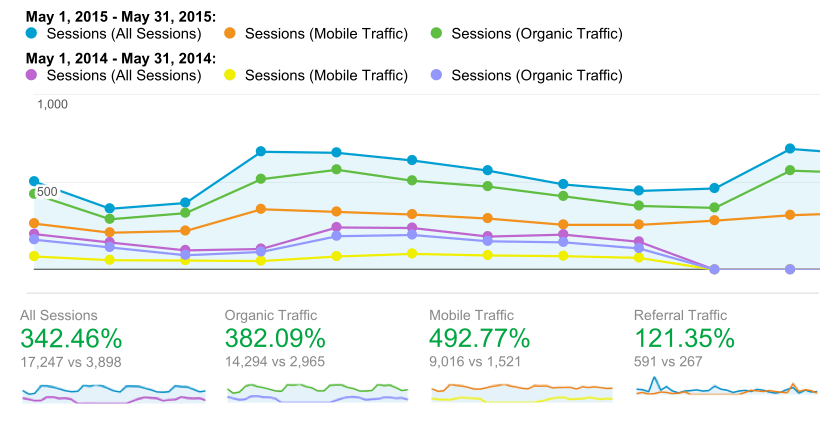
%
Increase In Site Traffic
%
Decrease In Bounce Rate
%
Increase In Conversions
Download Our FREE Book on Digital Marketing for Lawyers
No Email Signup Required to Download!
Our FREE book is written by the country’s leading expert on law firm marketing, Stephan Futeral. Based on over 25 years of experience helping law firms find success, Stephan explains everything from lawyer SEO, website design for lawyers, content marketing for lawyers, Google Ads for lawyers, social media marketing for lawyers, video marketing for lawyers, increasing online reviews, and much more.
In the book, you’ll learn how to avoid costly marketing mistakes and how to use the best practices for successfully generating high-value clients and maximizing revenue. “Digital Marketing for Lawyers” is the most comprehensive resource for online law firm marketing available today.
CHOOSE A VERSION TO DOWNLOAD NOW
